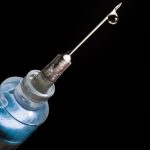A potentially fatal antibiotic-resistant bacteria has been found on a popular stretch of river in Cambridgeshire.
A study by Anglia Ruskin University identified pseudomonas bacteria, which is hazardous to humans, in 21% of samples taken.
Researchers found the bacteria in wild bird faeces after taking 115 swabs over a two-year period within half-a-mile of the riverbank along a 10-mile stretch of the River Cam in and around Cambridge.
Of the 115 samples, 24 contained pseudomonas bacteria, which can be found naturally in the environment, and can potentially be passed on to humans through cross-contamination.
One of the samples contained pseudomonas aeruginosa, known to cause illnesses ranging from treatable ear infections, to fatal lung infections and typically affects those with a weakened immune system.
Pseudomonas aeruginosa is the second most common UK hospital infection and approximately a quarter of people infected die from the illness.
All the bacteria samples were found to be resistant to at least one of five different types of antibiotics tested on them and three-quarters were resistant to two or more of the antibiotics used.
Zephaniah McLeod: Birmingham knifeman who killed one and injured seven in random attacks gets life sentence
Liverpool terror attack: Emad al Swealmeen formally identified as person killed in hospital blast
Cricketer Jack Brooks to undergo training on diversity as he is reprimanded by Somerset over historical tweets
None of the pseudomonas bacteria tested were resistant to all five types of antibiotics and only one strain was resistant to the last-line-of-defence antibiotic, meropenem.
Lead author Joana GC Rodrigues, associate lecturer in life sciences at Anglia Ruskin University, said: “The River Cam runs through the centre of Cambridge and is an extremely popular spot for leisure activities such as walking, picnicking, and boating.
“Therefore, the results from our study highlight the importance of basic personal hygiene, such as washing our hands after being outdoors, due to the risk of cross-contamination.”
The report comes as Dr Susan Hopkins, chief medical adviser at the UK Health Security Agency (UKHSA), said this week: “AMR (antimicrobial resistance) has been described as a hidden pandemic and it’s important that we do not come out of COVID-19 and enter into another crisis.”
The UKHSA warned this week that as COVID restrictions are eased and social contact increases, there is likely to be an increase in cases of AMR.
According to the O’Neill report, commissioned by the UK government and the Wellcome Trust, AMR is leading to a major global crisis that already causes 700,000 deaths annually.
Without intervention, deaths are estimated to increase to 10 million by 2050.






















